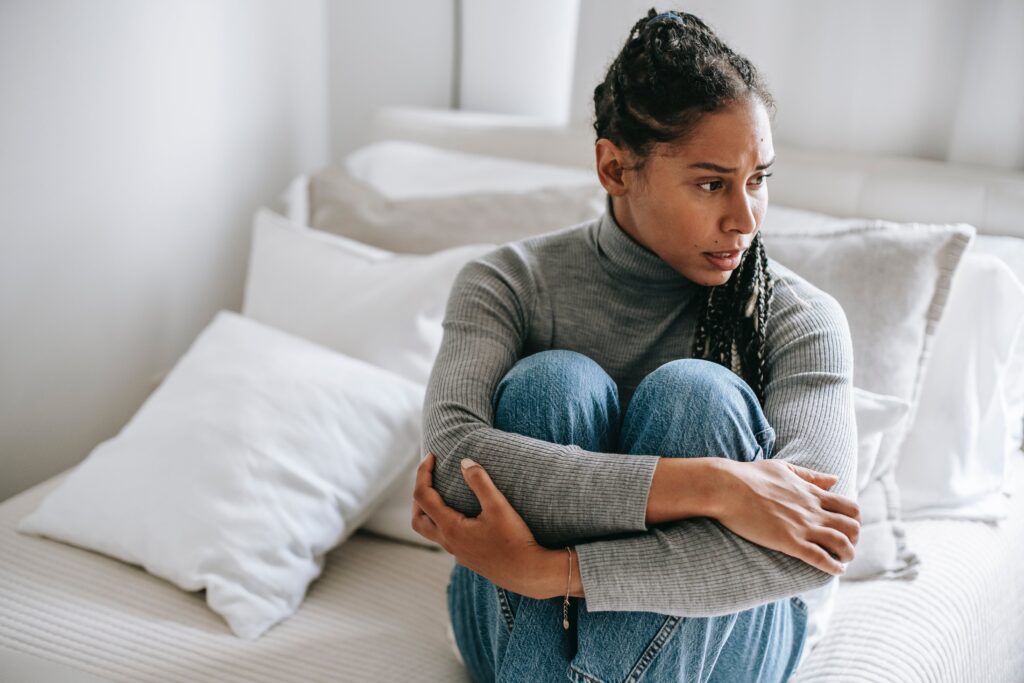Recognized today as a notorious date rape substance, GHB (gamma hydroxybutyrate) can induce effects ranging from euphoria at low doses to blackouts and amnesia in higher doses. Originally utilized as a surgical anesthetic in the 1960s, this chemical compound later gained infamy as a party drug and fat burner in the 1980s.
If you are concerned about addiction to GHB, read on to learn:
- How addictive is GHB?
- What are the main dangers of GHB abuse?
- What’s the safest approach for GHB detox?
- What’s the best treatment for GHB overdose?
- How to get treatment for GHB drug addiction in California.

Is GHB Addictive?
In 2002, the FDA approved Xyrem – a medication containing GHB used for treating narcolepsy – although it is subject to strict regulation as a Schedule III controlled substance.
GHB that is not produced as a pharmaceutical product with FDA approval is categorized as a CNS (central nervous system) depressant. GHB is a Schedule I controlled substance, signifying its strong abuse potential.
Long-term use of GHB can lead to addiction. GHB has a profound influence on the brain, affecting various neurotransmitters, including GABA (gamma-aminobutyric acid). GABA is a chemical messenger that inhibits brain activity, triggering drowsiness and relaxation.
Chronic GHB use can result in dependence, where the brain and body adapt to GHB, requiring its use for normal functioning. Upon discontinuation, those who are dependent on GHB may experience unpleasant withdrawal symptoms. Resultantly, many people continue using GHB to avert withdrawal symptoms, creating a challenging cycle of dependence. These challenges with discontinuation contribute to the cycle of addiction, characterized by persistent engagement in compulsive substance use despite adverse outcomes.
Signs of GHB Addiction
GHB symptoms and signs can vary from person to person, influenced by factors like usage frequency, duration, tolerance, sensitivity, and personal or environmental elements. Common indicators of GHB addiction may include any or all of the following.
Compulsive use
Strong desire to use GHB despite adverse outcomes in various aspects of life.
Withdrawal symptoms
Withdrawal symptoms like anxiety, insomnia, sweating, nausea, tremors, and seizures manifesting upon reducing or discontinuing GHB use.
Tolerance
Increasing need for larger GHB doses to attain desired effects indicating the development of tolerance to GHB.
Physical symptoms
Dizziness, confusion, slurred speech, impaired coordination, nausea, and vomiting.
Mood changes
Irritability, aggression, depression, and anxiety.
Memory loss
Blackouts or memory gaps after GHB use.
Risky behaviors
Engaging in risky sexual behavior, driving under GHB influence, and other dangerous activities while using the drug.
GHB Addiction Symptoms
GHB addiction is classified as a substance use disorder. Its criteria are listed in DSM-5-TR (fifth revised edition of APA’s Diagnostic and Statistical Manual of Mental Disorders) as follows:
- Engaging in GHB use in quantities or durations surpassing the initially intended levels.
- Expressing a desire to reduce or discontinue use but encountering difficulty in doing so.
- Devoting lots of time to acquiring, using, and recuperating from the effects of GHB.
- Encountering intense cravings for GHB.
- Neglecting personal or professional responsibilities due to GHB use.
- Persisting in substance use despite its contribution to social or interpersonal issues.
- Forsaking social, recreational, or occupational activities and withdrawing from relationships to enable substance use.
- Using GHB in hazardous situations, such as while operating a vehicle.
- Continuing substance use despite awareness of physical or psychological issues caused or worsened by such use.
- Developing tolerance, necessitating increased substance amounts for desired effects.
- Experiencing unpleasant or uncomfortable GHB withdrawal symptoms upon discontinuation.
Treatment for GHB Addiction
Withdrawal symptoms of GHB may present when someone first stops using the drug, especially if their body has developed dependence on the substance for normal functioning. GHB withdrawal symptoms commonly include anxiety, insomnia, tremors, sweating, elevated heart rate, and psychotic thoughts. Medical supervision and addiction treatment within a detox facility or rehabilitation center is often the most effective springboard for ongoing treatment.
There are currently no established medications specifically for treating GHB addiction. In certain cases, controlled doses of benzodiazepines, antidepressants, or anticonvulsants may be prescribed as part of the treatment. Recovery professionals advocate confronting GHB addiction with a comprehensive treatment plan that emphasizes positive decision-making, overall health enhancements, and the acquisition of coping skills.
Following the detox phase, ongoing treatment takes place in an inpatient or outpatient setting to address the behavioral and emotional aspects of addiction. In inpatient rehab, individuals reside at the treatment center, receiving 24/7 care, support, and treatment, including individual and group counseling, behavioral therapies, and education. Outpatient services, by contrast allow individuals to live at home or in a sober living environment while attending the same treatments, programs, and therapies offered at residential rehab.
Regardless of the rehab setting, various behavioral therapies may be employed. CBT (cognitive behavioral therapy), proven effective for CNS depressant addiction, assists in identifying and modifying unhelpful or negative thoughts and behaviors impacting substance use. It imparts coping, stress management, and relapse prevention skills to streamline sustained recovery.

Get Treatment for GHB Addiction at Gratitude Lodge
If you or someone that you care about is addicted to GHB, we offer a variety of addiction treatment programs at Gratitude Lodge. We have inclusive and pet-friendly rehab centers in Long Beach and Newport Beach, CA, where you can begin your recovery the right way.
During supervised medical detoxification, you can take advantage of medications approved by the FDA to reduce the intensity of the withdrawal process. You will also benefit from around-the-clock care, reducing the chance of complications or relapse derailing your early recovery.
After about a week of detox, you can move into ongoing inpatient treatment at one of our beachside facilities. All Gratitude Lodge treatment programs mix holistic and science-based treatments, such as:
- Psychotherapy
- Medication-assisted treatment
- Individual counseling
- Group therapy
- Holistic therapies
- Family therapy
- Aftercare and support
Call 800-994-2184 and get immediate assistance combating GHB addiction in California.




























